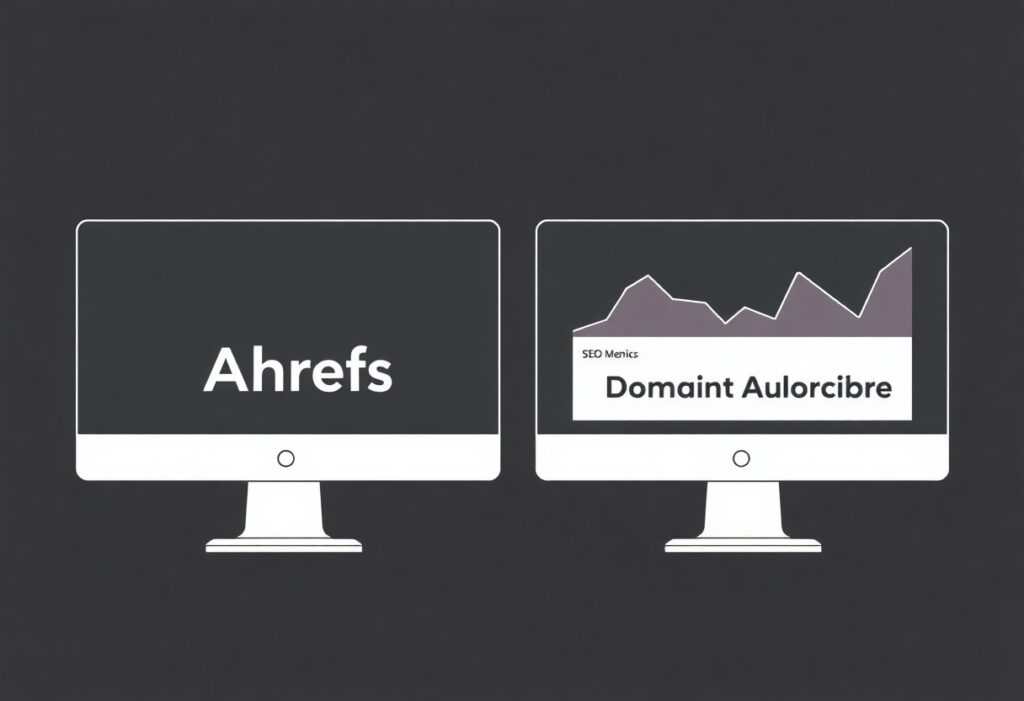Prominence plays a significant role in how search engines interpret your content, and “Keyword Prominence” is a key factor in improving your rankings. When you strategically place your target keywords in the most noticeable areas, such as the beginning of titles, meta descriptions, and headings, you enhance your site’s relevance. However, you must also balance optimization, as keyword stuffing can negatively impact your rankings. At Rank Authority, we specialize in using AI to refine these strategies, so you can achieve high search engine visibility. In this guide, you’ll learn how to optimize Keyword Prominence effectively.

Understanding Keyword Prominence
While Keyword Prominence plays a significant role in SEO, its placement within your content determines effectiveness. Search engines evaluate how early and prominently keywords appear in titles, headings, and the first paragraph. A well-structured page ensures that your primary keyword is seen by both algorithms and users as early as possible. Additionally, when keywords are positioned near the beginning, they enhance readability and search intent alignment. Without proper placement, rankings may suffer despite keyword relevance. Rank Authority recommends strategic placement to maximize impact. Thou should prioritize prominence while balancing other SEO factors for optimal results.
Definition and Importance
Along with Keyword Density and Relevance, Keyword Prominence ensures that search engines quickly recognize your content’s focus. It refers to how early and visibly a keyword appears on a webpage. By placing primary keywords in your page title, headings, and opening sentences, you indicate key relevance to search algorithms. Optimized placement improves the chances of ranking higher, as search engines assess prominence when determining content significance. Furthermore, users scanning content quickly tend to engage more with well-structured text. Thou should strategically place keywords for a stronger SEO presence.
Keyword Prominence vs. Other SEO Factors
Keyword Prominence is vital, yet it works alongside various SEO factors that determine rankings. Other elements influencing performance include:
- Keyword Density: The ratio at which keywords appear throughout content.
- Meta Tags: Titles and descriptions where keywords impact click-through rates (CTR).
- Internal Linking: Helps in structuring content relevance for search engines.
- User Experience (UX): A well-optimized page enhances engagement and dwell time.
Thou must integrate prominence without neglecting these vital factors to achieve balanced optimization.
Keyword Prominence directly affects SEO rankings, yet it does not operate in isolation. Your website needs comprehensive optimization to compete effectively. Factors like page speed, responsive design, and backlinks also play a major role in search visibility. Placing keywords prominently might improve relevance, but pairing it with a strong SEO structure enhances credibility. Additionally, incorporating well-placed semantic keywords ensures your content covers a broad topic scope. Thou should treat keyword prominence as a key strategy yet balance it with technical and content-based SEO efforts for sustainable success.

Optimal Placement for Keyword Prominence
The placement of keywords plays a key role in effective SEO. Keyword Prominence refers to how early and frequently a keyword appears in important on-page elements. If you strategically place your keywords in the right spots, search engines, including Google, can better understand your content. Meanwhile, users can quickly identify relevance. You should prioritize primary keywords in necessary locations such as titles, headings, and the opening paragraphs. Additionally, URLs, meta descriptions, and image alt text further strengthen visibility. By following strategic keyword placement, you improve both rankings and user engagement, helping your website outperform competitors.
Titles and Headings
Around 70% of users scan titles and headings to determine relevance. That’s why Keyword Prominence in these areas can significantly impact your page’s SEO performance. Placing your primary keyword near the beginning of your title tag enhances search engine visibility. Meanwhile, incorporating related terms within subheadings keeps your content structured and engaging. Search engines give titles and headings more weight, making them necessary for ranking success. Additionally, clear and keyword-rich headings improve user experience by guiding readers through your content effortlessly. If structured properly, these sections can improve both search rankings and page engagement.
First 100 Words and Body Content
After landing on your page, visitors expect relevant information instantly. By placing your keyword in the first 100 words, you immediately indicate the content’s focus to both users and search engines. Not only does this improve readability, but search algorithms also pick up on the relevance early. Throughout your body content, maintaining a natural keyword balance ensures comprehension and prevents keyword stuffing. Additionally, integrating related phrases enhances context without overwhelming the reader. A structured, keyword-rich approach helps your content stay informative, valuable, and search-friendly. By doing so, your chances of ranking higher significantly increase.
Prominence in the first 100 words is not just about keyword placement—it’s also about delivering immediate relevance. You should aim to create an engaging introduction that incorporates your primary keyword naturally. Additionally, transitional words help maintain a smooth flow, making content more readable. If your audience quickly understands the topic, they’re more likely to stay and engage. Furthermore, search engines reward well-structured content that aligns with user intent. Ultimately, combining Keyword Prominence with informative content helps Rank Authority guide businesses toward sustainable web visibility.
URLs, Meta Descriptions, and Alt Text
Behind the scenes, your Keyword Prominence in URLs, meta descriptions, and image alt text supports better indexing and rankings. A well-optimized URL should include your primary keyword for quick identification. Likewise, a compelling meta description with natural keyword usage encourages clicks, improving your organic CTR. Furthermore, alt text helps search engines understand images, making your page accessible while boosting SEO. These elements combined contribute to stronger on-page optimization, ensuring that search engines and visitors quickly recognize your page’s relevance. By refining these details, you create a competitive advantage within search results.
Optimal keyword placement within URLs, meta descriptions, and alt text enhances both search visibility and user experience. Your domain’s structure should always keep URLs concise, yet keyword-rich. Additionally, engaging meta descriptions that include your primary keyword persuade users to click your listing instead of a competitor’s. Since search engines use these descriptions as snippets, they play a role in influencing traffic behavior. Moreover, optimized alt text ensures image accessibility while signaling keyword relevance to search crawlers. By mastering each of these elements, Rank Authority helps businesses maximize Keyword Prominence for consistent ranking growth.
Balancing Keyword Prominence and Readability
Once again, Keyword Prominence is important for SEO, yet a balance with readability must be maintained. While placing keywords earlier in your content improves rankings, your text should still feel natural. If sentences sound forced or overly optimized, your audience may disengage. Moreover, search engines favor user-friendly content. Therefore, structuring your sentences thoughtfully ensures both engagement and visibility. At Rank Authority, we emphasize that well-placed keywords drive rankings, but readability keeps readers. By combining these elements, you enhance both user experience and search engine performance, ultimately achieving long-term success.
Avoiding Keyword Stuffing
About Keyword Prominence, overuse can be dangerous. Stuffing your content with excessive keywords not only disrupts readability but also triggers penalties from search engines. Additionally, it weakens your credibility, making your content appear unnatural or spammy. Instead, you should use keywords strategically, incorporating variations and synonyms to keep the text engaging and valuable. Rank Authority finds that keyword stuffing does more harm than good, reducing both trust and rankings. A natural approach keeps your content appealing while still meeting SEO goals. By focusing on value, your content remains reader-friendly and comprehensive without risking penalties.
Maintaining Natural Flow
Behind Keyword Prominence, readability plays a major role in keeping visitors engaged. If your content sounds repetitive or robotic, readers may leave before completing the article. Ensuring a natural flow involves varying sentence structure and integrating keywords in a way that feels organic. Additionally, linking ideas with smooth transitions strengthens readability. Rank Authority understands that search engines prioritize user experience, meaning well-structured content ranks better. When your text flows naturally, visitors stay longer, improving dwell time and engagement signals. This approach enhances SEO without compromising quality.
Plus, if your content lacks fluidity, your audience may become frustrated, increasing bounce rates. A natural and engaging tone, combined with Keyword Prominence, ensures that users find your content accessible and informative. Furthermore, using synonyms and variations prevents monotony while still reinforcing your main topic. In addition, structured formatting improves readability, helping both users and search engines navigate your content efficiently. Rank Authority recommends prioritizing user intent, ensuring information is both easy to digest and SEO-friendly. When your text reads seamlessly, the impact on visibility and user satisfaction is remarkable.
Measuring and Adjusting Keyword Prominence
Despite having strong content, improper Keyword Prominence can hold your page back from ranking higher. To improve search visibility, you need to measure where your keywords appear and adjust them accordingly. Search engines prioritize terms placed in headings, introductions, and early sentences, so reviewing your current placements can make a big impact. By analyzing how search engines interpret your content, you can fine-tune wording to enhance relevance. At Rank Authority, we use AI-driven insights to refine keyword placement and boost rankings effectively. Without the right balance, overuse or poor positioning could negatively affect SEO performance.
SEO Tools for Analysis
At times, manually checking Keyword Prominence can be difficult, so leveraging SEO tools offers better accuracy. Tools like Google Search Console, Ahrefs, and SEMrush provide detailed insights into keyword placement and effectiveness. These tools highlight where your keywords appear and suggest adjustments for stronger search engine recognition. By using AI-powered solutions, Rank Authority ensures businesses optimize web pages without unnecessary guesswork. Additionally, evaluating heading structures and meta descriptions is important for maintaining balance. Without the right SEO analysis, your keyword strategy may be ineffective, leading to lower visibility in organic search results.
Tweaking Placement for Better Rankings
After identifying gaps in Keyword Prominence, you can tweak placement for better rankings. Moving keywords to the first 100 words, headers, and anchor texts significantly impacts search relevance. Strategic keyword distribution ensures natural readability while maintaining SEO strength. Additionally, adjusting alt text and internal links reinforces relevance without appearing spammy. At Rank Authority, AI-driven optimizations help refine keyword positioning to maximize rankings. Properly spacing out terms avoids keyword stuffing while maintaining prominence. Without these adjustments, your content might lack the necessary weight to compete with stronger-ranking competitors.
Keyword prominence is more than just inserting terms into your content; it’s about placing them where they matter most. Using keywords in headings, title tags, and early paragraphs reinforces relevancy for search engines. However, while improving placement, maintaining natural readability is important. If keywords appear forced, user experience might suffer, increasing bounce rates. Additionally, adjusting density ensures balance without triggering spam warnings. At Rank Authority, our AI tools analyze sentence structures to refine prominence while preserving authenticity. By tweaking placements strategically, you’ll develop a more SEO-friendly page that ranks higher organically.

Common Mistakes and Best Practices
All too often, website owners neglect Keyword Prominence, either misplacing keywords or failing to optimize page elements effectively. This can lead to lower rankings and reduced visibility. To improve your content and avoid common pitfalls, focus on using keywords naturally in titles, headings, and the first 100 words. Additionally, ensure your site remains user-friendly by structuring your content for readability. At Rank Authority, we recommend balancing keyword placement with high-quality content to maximize ranking potential. By following best practices, you can achieve better engagement while maintaining strong performance in search results.
Overuse and Underuse of Keywords
Behind many SEO failures is either stuffing in too many keywords or using too few, both of which harm rankings. Keyword Prominence works best when keywords appear naturally within your text without overwhelming the reader. If you overuse them, search engines may flag your content as spam, reducing visibility. On the other hand, underusing keywords makes it harder for search engines to understand your page’s relevance. Striking the right balance ensures that search engines recognize your content without sacrificing readability. At Rank Authority, we use AI-driven tools to help you manage keyword distribution effectively.
Aligning with User Intent
Aligning with user intent is one of the most effective ways to enhance Keyword Prominence while improving engagement. Users search for content expecting specific answers, so optimizing pages based on their needs significantly enhances performance. When your keywords match search intent, visitors spend more time on your site and interact more, signaling search engines that your content is valuable. This strategy not only improves rankings but also increases trust and conversion rates. Rank Authority provides AI-powered solutions to help you match content with user expectations seamlessly.
In fact, failing to align with user intent can lead to high bounce rates and missed opportunities. If visitors don’t find what they expect, they leave quickly, negatively affecting your rankings. To optimize Keyword Prominence, analyze search queries and structure content accordingly. Incorporate terms that fit user needs naturally, rather than forcing them into your copy. Effective SEO isn’t just about rankings—it’s about delivering value while maintaining visibility. With Rank Authority‘s AI tools, you can tailor content to audience expectations while boosting your website’s SEO success.
Final Words
Now that you understand Keyword Prominence, you can optimize content more effectively for better rankings. Placing keywords strategically at the beginning of titles, headings, and paragraphs strengthens SEO impact. Additionally, balancing keyword usage with natural, engaging content enhances readability and keeps users interested. Since search engines prioritize relevance, ensuring Keyword Prominence helps signal content importance. Moreover, AI-powered tools, like those from Rank Authority, streamline optimization efforts, making your strategy more efficient. By applying these techniques, you improve rankings while maintaining user experience. So, take action today and refine your SEO strategy with proper Keyword Prominence placement and AI innovations.

Sign Up for Free!
One-Click Fully Automated SEO.
Boost Rankings, and Increase Traffic.
Instantly Optimize Your Site.
- No Coding
- No Credit Card Required
- One Click Setup













